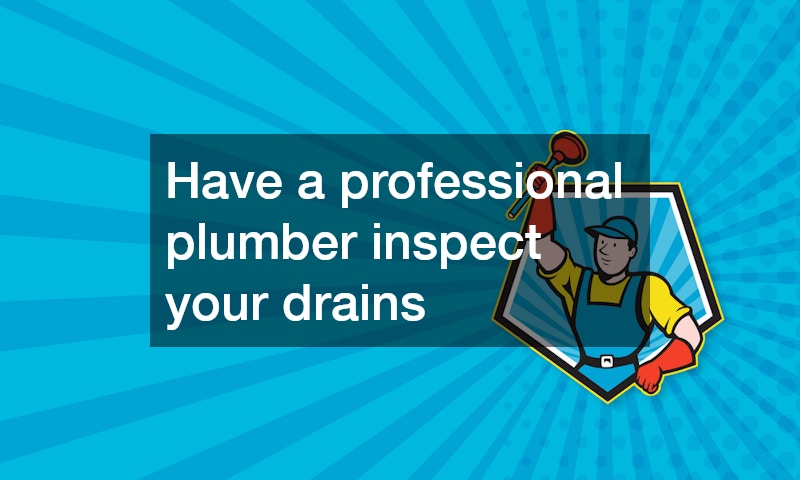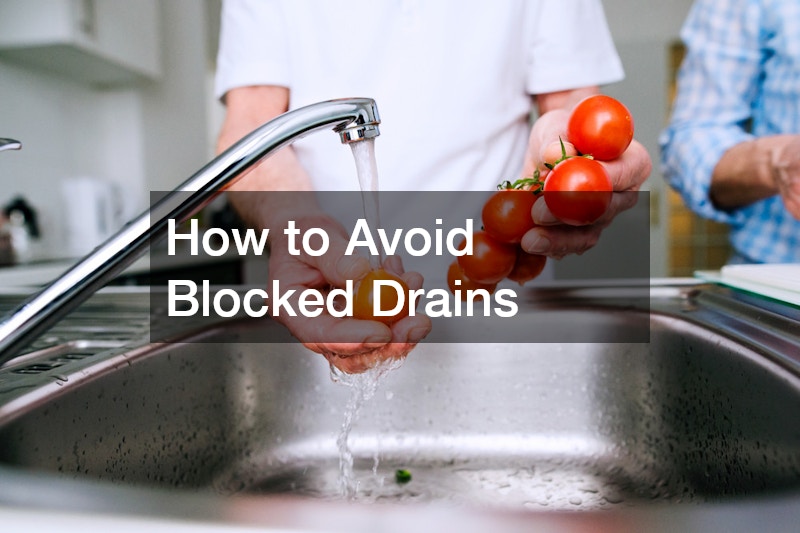Blocked drains are one of the most common plumbing problems in Australian homes. Whether it’s a slow-draining sink, a backed-up toilet or a foul odour coming from your pipes, dealing with a blockage is never pleasant. Fortunately, most blockages can be prevented with a few simple habits and regular maintenance. By taking proactive steps, you can reduce the likelihood of needing a blocked drain service and keep your plumbing system running smoothly.
Common Causes of Blocked Drains
Understanding what causes blocked drains can help you prevent them. Some of the most common culprits include:
- Hair and Soap Scum – Hair and soap residue can accumulate in bathroom drains, leading to slow drainage and blockages.
- Food Scraps and Grease – Kitchen sinks often get blocked due to food scraps, oil and grease solidifying in the pipes.
- Tree Roots – Roots can infiltrate underground pipes, causing major drainage issues that require professional intervention.
- Foreign Objects – Flushing items like baby wipes, cotton buds and sanitary products down the toilet can result in serious blockages.
- Mineral Build-Up – Hard water can lead to mineral deposits inside pipes, restricting water flow over time.
By avoiding these common causes, you can reduce the risk of needing a blocked drain service in the future.
Tips to Prevent Blocked Drains
Taking a few simple precautions can go a long way in preventing blocked drains and maintaining your plumbing system.
Be Mindful of What Goes Down the Drain
One of the easiest ways to prevent blockages is to be careful about what you put down your drains.
- In the kitchen: Avoid pouring grease, oil and food scraps down the sink. Instead, collect oil in a container and dispose of it in the rubbish.
Use a sink strainer to catch food particles before they enter the drain.
- In the bathroom: Install a drain cover in the shower to catch hair and prevent it from clogging the pipes. Avoid washing soap scum and excess toothpaste down the drain.
- In the toilet: Only flush toilet paper. Items like wipes, sanitary products and tissues should go in the bin, as they don’t break down like toilet paper.
Flush Drains with Hot Water
Pouring boiling water down your drains once a week can help dissolve grease and soap build-up, reducing the chances of a blockage. This is especially useful for kitchen sinks, where oil and grease can harden inside the pipes.
Use Natural Drain Cleaners
Harsh chemical drain cleaners can corrode pipes over time, leading to more plumbing issues. Instead, try natural alternatives like a mixture of baking soda and vinegar. Pour half a cup of baking soda down the drain, followed by half a cup of vinegar. Let it sit for 10-15 minutes before flushing with hot water.
Clean Drain Stoppers and Strainers Regularly
Drain stoppers and strainers help catch hair, food particles and debris before they enter the pipes. However, they need to be cleaned regularly to stay effective. Remove any trapped materials and rinse them thoroughly to keep water flowing freely.
Watch for Early Signs of a Blockage
Catching a blockage early can prevent major plumbing issues. Signs that you may need a blocked drain service include:
- Slow-draining water in sinks, showers or bathtubs.
- Gurgling noises coming from your pipes.
- Unpleasant odours coming from your drains.
- Water backing up in sinks or toilets.
If you notice any of these signs, taking action early can save you from costly repairs.
Maintain Your Outdoor Drains
Outdoor drains can become blocked by leaves, dirt and other debris, leading to flooding and drainage issues. Keep gutters and outdoor drains clear by regularly removing leaves and installing drain guards to catch debris before it enters the system.
Avoid DIY Pipe Repairs
While it may be tempting to fix a blocked drain yourself, using makeshift tools or excessive force can damage pipes. Plungers and drain snakes can be effective for minor clogs, but if the blockage persists, it’s best to call a blocked drain service rather than risk damaging your plumbing.
Schedule Regular Drain Inspections
Having a professional plumber inspect your drains periodically can help detect potential problems before they become serious. A blocked drain service can use specialised tools like drain cameras to identify build-ups, cracks or tree root intrusions before they lead to major blockages.
When to Call a Professional Blocked Drain Service
Despite your best efforts, blockages can still occur. If your drain is completely clogged, water is backing up into your home or you notice a foul smell coming from your pipes, it’s time to call in a professional blocked drain service.
A licensed plumber can:
- Use advanced equipment, such as hydro jetting and drain cameras, to clear stubborn blockages.
- Identify underlying issues, such as damaged pipes or root intrusions.
- Provide long-term solutions to prevent recurring blockages.
Trying to fix a serious blockage on your own can often make the problem worse. Professional blocked drain services ensure the job is done safely and effectively, preventing further damage to your plumbing system.
Blocked drains are a common household issue, but they can often be prevented with proper care and maintenance. Being mindful of what goes down your drains, cleaning strainers regularly and scheduling professional drain inspections can help keep your plumbing in top shape.
If you notice signs of a blockage, don’t wait until it gets worse—contact a blocked drain service to get the problem fixed before it leads to more costly repairs. With a little effort, you can keep your drains clear and avoid the stress of dealing with a plumbing emergency.
.

